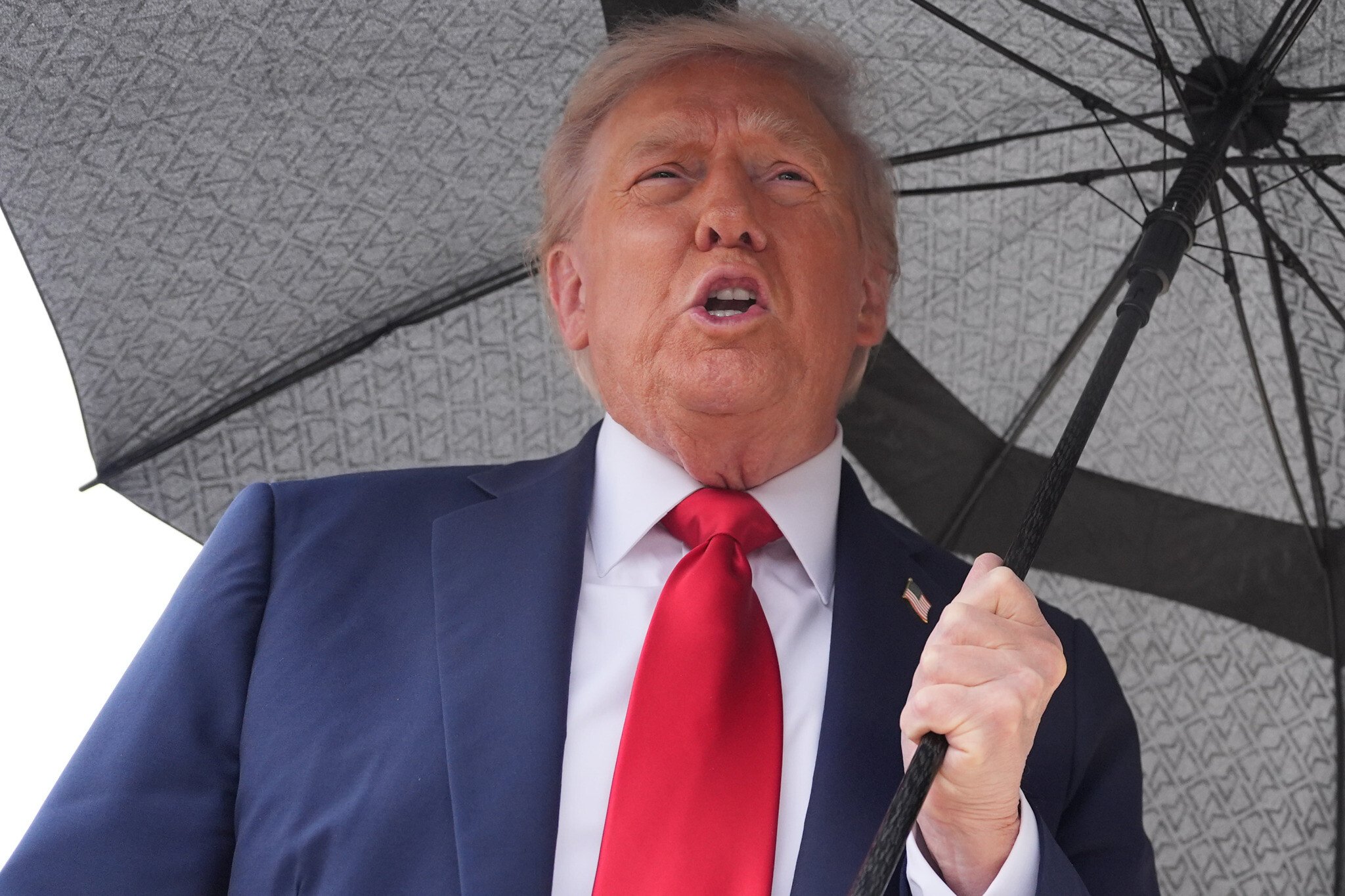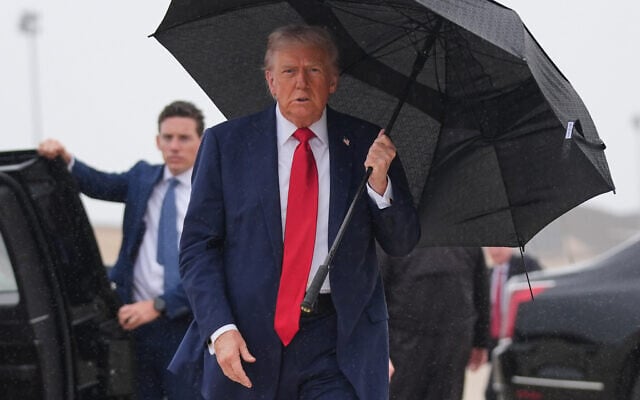


US President Donald Trump declared on Sunday that the war in Gaza was “over,” and appeared confident that the ceasefire and hostage release deal he arranged would hold, as he headed to Israel aboard Air Force One to celebrate the release of the hostages.
His remarks came hours after Prime Minister Benjamin Netanyahu declared that Israel’s military campaign had not yet ended, and warned of unspecified “major security challenges” that he said would need to be faced in the near future.
Yet despite the premier’s comments and the fact that the Israeli government has only voted to approve the “first phase” of Trump’s plan but not to end the war altogether, Trump seemed certain that the fighting in Gaza was a thing of the past as he spoke to reporters aboard Air Force One.
“Benjamin Netanyahu, the prime minister, has not gone so far as to say the war is over,” a reporter put to him on the plane. “In your view, is the war between Israel and Hamas over?”
Trump responded instantly and firmly: “The war is over,” he says. “The war is over. Ok. You understand that?”
“I think it’s going to hold,” he said of the ceasefire, which came into effect just days after the second anniversary of the brutal Hamas invasion of southern Israel on October 7, 2023, which sparked the war in Gaza. “I think people are tired of it. It’s been centuries.”
He said he had received “guarantees” from both Israel and Hamas, and from other key regional players, about the initial phase of the deal, as well as the future stages which have yet to be finalized.
“We have a lot of verbal guarantees, and I don’t think they’re going to want to disappoint me,” Trump said.
The Republican leader also commented briefly on his relationship with Netanyahu, saying it was “very good,” although there had been “some disputes with him.”
“They were quickly settled,” he noted of the disputes.
He said that he believed Netanyahu had done a “great job” leading Israel through the past two years of war.
“I think he was the right person at this time,” said Trump.
Trump’s visit to Israel on Monday is expected to be brief, roughly four hours long, and will include meetings with the families of the hostages and with Netanyahu, and a speech at the Knesset in Jerusalem.
He was formally invited to address the Israeli parliament by Knesset Speaker Amir Ohana, who informed the president in a letter that “the people of Israel regard you as the greatest friend and ally of the Jewish nation in modern history.”
According to the Ynet news outlet, Trump responded to Ohana’s invitation with a promise that the US would continue working “until peace is fully realized and preserved” across the region.”
Trump will become only the fourth US president to address the Knesset, following Jimmy Carter in 1979, Bill Clinton in 1994, and George W. Bush in 2008.
After his brief time in Israel, Trump will then head to Egypt, where he and President Abdel Fattah el-Sissi will co-host a summit of more than 20 world leaders to back his plan to end the Gaza war and promote Middle East peace. Neither Israel nor Hamas will have representatives in attendance, although Palestinian Authority President Mahmoud Abbas will be there.
His trip is partly a victory lap over the long-elusive deal that he helped broker at a rapid pace with his 20-point peace plan late last month.
Earlier on Sunday, as he prepared to board Air Force One at Joint Base Andrews in Maryland, Trump had acknowledged the impact of his administration’s involvement in the push to end the war.
“Everybody’s very excited about this moment in time. This is a very special event,” he said, holding an umbrella as light rain fell.
“There are 500,000 people yesterday and today in Israel,” he said, presumably referring to a mass rally for the hostages on Saturday night in Tel Aviv at which US Middle East Special Envoy Steve Witkoff spoke and was applauded. The organizers of the rally claimed half a million people were in attendance.
“And also, the Muslim and Arab countries are all cheering. Everybody’s cheering at one time. That’s never happened before,” Trump continued. “Usually, if you have one cheering, the other isn’t. This is the first time everybody is amazed, and they’re thrilled, and it’s an honor to be involved, and we’re gonna have an amazing time, and it’s gonna be something that’s never happened before.”
The president was careful to stress that the US did not work alone to secure the agreement between Israel and Hamas, telling reporters that Qatar, too, deserved praise.
“Qatar was a tremendous help in getting this done,” he said. “I hope people can realize that.”
He said it had been “very tough and dangerous” for Doha to oversee the multiple rounds of negotiations over the past two years, asserting that “Qatar should start getting some credit.”
“Turkey was fantastic too,” he noted.
Looking ahead, Trump told reporters he would eventually like to visit Gaza itself, but did not provide a timeline for the difficult security challenge.
“I would be proud to,” he said of the possibility of visiting the Palestinian enclave. “I’d like to put my feet on it at least.”
“I think there’s going to be a great miracle over the coming decades,” he said of Gaza, which, minutes earlier, he had said currently looked “like a demolition site.”
A key part of Trump’s plan, and of the long rehabilitation that lies ahead for the Gaza Strip, is the establishment of a new governing body made up of Palestinian technocrats and headed by the president himself.
This body, he told reporters, would be established “very quickly.”
But he appeared to take a step back over his plans to involve former British prime minister Tony Blair, a controversial choice in the Middle East because of his role in the 2003 invasion of Iraq.
“I’ve always liked Tony, but I want to find out that he’s an acceptable choice to everybody,” Trump said.



